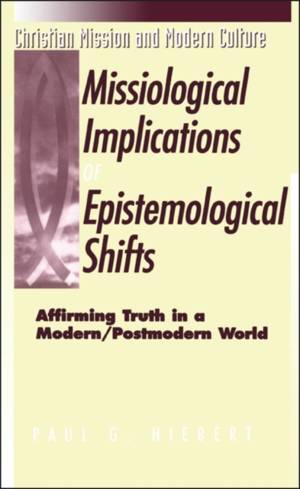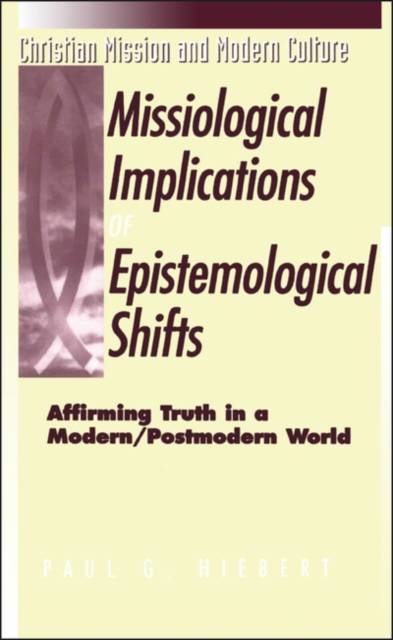
- Afhalen na 1 uur in een winkel met voorraad
- Gratis thuislevering in België vanaf € 30
- Ruim aanbod met 7 miljoen producten
- Afhalen na 1 uur in een winkel met voorraad
- Gratis thuislevering in België vanaf € 30
- Ruim aanbod met 7 miljoen producten
Zoeken
Missiological Implications of Epistemological Shifts
Affirming Truth in a Modern/Postmodern World
Paul G Hiebert
€ 62,95
+ 125 punten
Omschrijving
What must a new convert know or believe? How do they know? How can Christian teaching be translated and communicated interculturally without distorting the message? How should mission be done in an anticolonial, postmodern era charactersized by religious relativism and accusations of Christian imperialism? Hiebert focuses on three epistemological foundations or specific theories of knowledge that underlay these questions - positivism, instrumentalism/idealism and critical realism. He embraces critical realism because it allows for a real world that exists independently from human perceptions and opinions, restores emotions and moral judgements as essential parts of knowing, and creates conditions for knowing persons intimately and as fully human. Paul G. Hiebert is Professor of Anthropology and Mission, chair of the Department of Mission and Evangelism, and Associate Dean of Academic Doctorates at Trinity Evangelical Divinity School.
Specificaties
Betrokkenen
- Auteur(s):
- Uitgeverij:
Inhoud
- Aantal bladzijden:
- 152
- Taal:
- Engels
- Reeks:
Eigenschappen
- Productcode (EAN):
- 9781563382598
- Verschijningsdatum:
- 1/01/1999
- Uitvoering:
- Paperback
- Formaat:
- Trade paperback (VS)
- Afmetingen:
- 121 mm x 185 mm
- Gewicht:
- 158 g

Alleen bij Standaard Boekhandel
+ 125 punten op je klantenkaart van Standaard Boekhandel
Beoordelingen
We publiceren alleen reviews die voldoen aan de voorwaarden voor reviews. Bekijk onze voorwaarden voor reviews.











